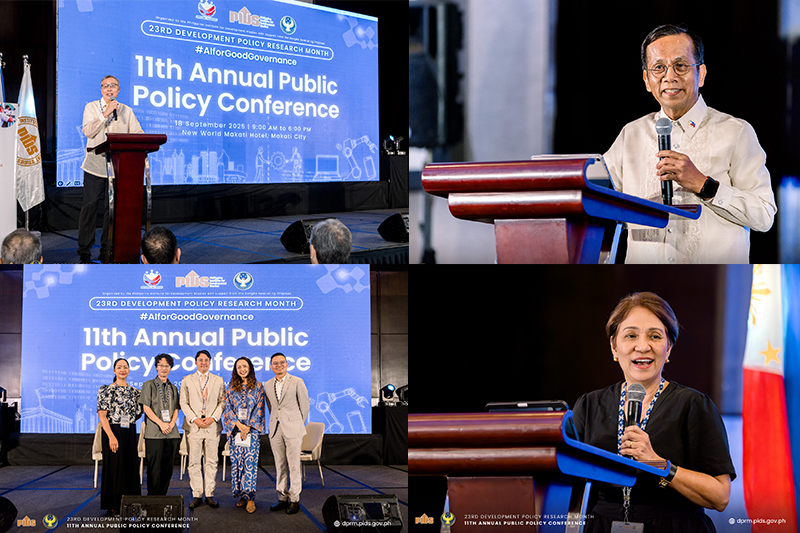
Artificial intelligence (AI) could worsen the digital divide in the Philippines unless the government acts fast to strengthen data systems, expand digital connectivity, and implement safeguards, experts warned at the 11th Annual Public Policy Conference (APPC) on September 18.
The APPC, organized by the Philippine Institute for Development Studies (PIDS) as the flagship activity of the Development Policy Research Month (DPRM) celebration, carried the theme “Reimagining Governance in the Age of AI.”
In his opening message, PIDS President Philip Arnold Tuaño described AI as both a powerful tool and a looming threat.
“AI is now an enabler of connections, a driver of knowledge creation, and a catalyst for adaptation in nearly every field,” he said.
However, he cautioned that without better infrastructure, skills, and governance, its benefits will remain concentrated in the hands of a few.
Socioeconomic Planning Secretary Arsenio Balisacan echoed this statement by stressing that the challenge is no longer hypothetical.
“AI is here,” he said. “Without decisive action, only large corporations and urban centers will benefit, leaving rural communities and small enterprises further behind.”
He cited the recently passed Konektadong Pinoy Law, or the Open Access in Data Transmission Act, which introduces crucial reforms to boost competition in telecommunications, lower costs, and improve access. The measure, he noted, is part of ensuring that no Filipino is left behind, whether in bustling cities or far-flung barangays.
Global lessons, local challenges
Christopher Lamont of Tokyo International University stressed that governments must view AI as a governance challenge, not merely a technical one.
“The real test of AI is not just whether it spurs growth, but whether it safeguards citizens,” he said, calling for a precautionary, rights–based approach.
From a local perspective, Naoto Kanehira, Senior Digital Development Specialist at the World Bank, noted that fragmented and unreliable datasets hinder the country’s capacity to utilize AI effectively.
“Data is often inaccurate, incomplete, not sharable, or even not machine-readable,” he said, adding that without reliable data, AI cannot deliver smarter, faster public services.
Yet, even if data systems are in place, millions of Filipinos still cannot benefit because they remain offline or lack the skills to navigate digital tools.
Information and communications technology policy analyst Mary Grace Mirandilla-Santos emphasized that without urgent investments in broadband and digital literacy, “AI will empower those already connected while excluding those still left behind.”
And beyond infrastructure and access, a deeper challenge lies in the very design of AI itself. Arifah Sharifuddin of the Tech for Good Institute cautioned that models developed abroad cannot be simply transplanted.
“Unless adapted to Philippine conditions, they risk reinforcing bias and failing to meet local needs,” she said.
Balancing innovation and safeguards
Science and Technology Undersecretary Leah Buendia urged regulators to encourage innovation while protecting citizens from risks such as misinformation and privacy breaches.
She emphasized three key commitments to advance AI in the Philippines.
First, she emphasized the importance of ensuring that ethical considerations, human rights, and sustainability remain at the forefront of technical adoption. Second, she stressed the importance of collaborative governance through a whole-of-society approach. Finally, she called on institutions to become future-ready to govern effectively in the age of AI.
“Let us remember that good governance is not measured by how advanced our technologies are, but how well they advance the security and prosperity of our people,” she concluded.
Catch the playbacks of the 11th APPC here: https://bit.ly/live2025APPC. — MJCG
###############
———————–The article provided is authorized for use, and represents solely the author’s personal opinions. Please contact us in the event of any potential infringement.



